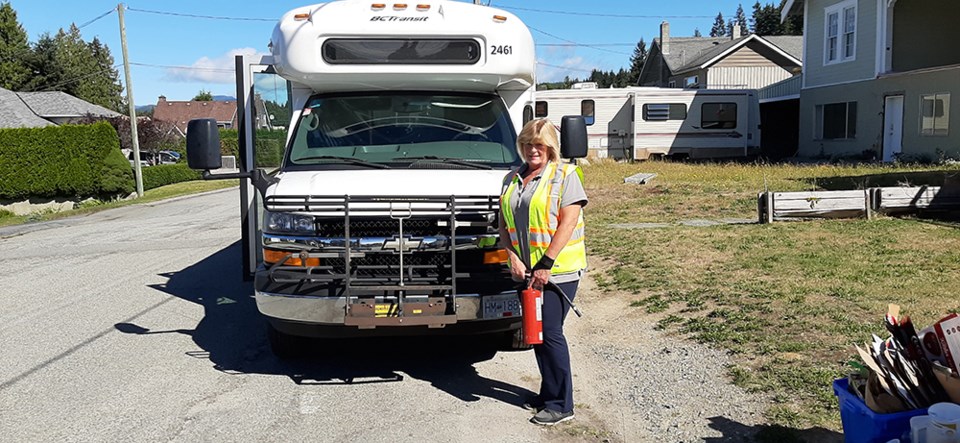qathet Regional District’s (qRD) finance committee is recommending the board approve a $5,000 expenditure to conduct a needs analysis of on-demand transportation in the region.
At the April 21 finance committee meeting, Electoral Area D director Sandy McCormick said the regional transportation working group has been meeting throughout the course of the last year and a half. She said one of the things the group has looked at is the on-demand model of transportation provision.
“That is more or less what the city is doing with their Zunga Bus right now,” said McCormick. “We looked at different examples of that and how they work and it was generally seen as an excellent opportunity for us to explore.
“Now that the Zunga Bus is running, we’re following along and seeing how the city does with that, but also, some of the models we looked at show routing over a grid system, whereas staff have done a report and identified for our working group that our needs are more linear in nature. In other words, trying to get between Lund and Saltery Bay.”
McCormick said what works in one scenario doesn’t automatically work in another one. She said this led to a need to work with an expert who can identify where qRD’s needs fit in overall transportation planning.
“What has been requested is the $5,000 to engage an expert to conduct a formal needs analysis of whether on-demand would work well in our linear setting or not,” said McCormick. “It’s that advice we’re looking for.”
Electoral Area B director Mark Gisborne said he had been hearing a lot about the Zunga Bus. He asked how much this on-demand service costs the user and how much this service costs the taxpayer.
“There’s going to be, I presume, some funding from the taxpayer to support this on-demand service,” said Gisborne. He added that perhaps city director CaroleAnn Leishman could enlighten him regarding costs.
Leishman said she would be happy to circulate information regarding the Zunga Bus and the pilot program for it.
Electoral Area E director Andrew Fall said he agreed with McCormick’s recommendation. He said he had no basis for the $5,000 so he assumed the money was available. He asked if it was sufficient to undertake a study.
McCormick said the figure was staff’s recommendation so she was trusting their judgment.
Finance committee chair and city director George Doubt said on-demand busing is an option to consider and there are a number of variations.
“I’ve heard of cities around North America that are actually considering whether to go with an on-demand service within a scheduled transit service, and an on-demand service as an alternative to a scheduled transit service,” said Doubt. “I’d like to see the $5,000 study go ahead. It’s a good idea to explore what services might be possible within the regional district and who is going to pay, because everything costs money.”
Costs concern director
Gisborne said he is a little nervous about spending the $5,000 if the model doesn’t really work in a rural area.
“The main reason I think public transit is important for all communities is not just congestion, but also, climate change,” said Gisborne. “If we get a bus driving around that only has a couple of people in it, because that’s the on-demand system, that might not be any better than someone driving a car.
Gisborne said he has concerns about the cost.
“We do have issues with affordable housing and taxation does tie into affordable housing,” he added. “I found out recently that at least one regional district actually got rid of their rural paratransit system, that was the Regional District of Kootenay Boundary. They took a look at how much it was costing and saw there were a couple of people on the bus. They came to the conclusion it was a significant cost to the taxpayer and the juice just wasn’t worth the squeeze.”
Gisborne said, however, he is willing to support the recommendation.
McCormick said money for the study would come out of the paratransit contingency fund so it’s not money that could be spent on affordable housing or other purposes.
“The working group has a responsibility to the board to come back with recommendations and right now the group needs advice beyond the expertise levels of the working group,” she added.
Electoral Area C director Clay Brander said he is in support of the recommendation.
“The whole reason is to flesh out whether it will be a viable service and we can’t nix it because of speculation,” said Brander. “We need to have an expert come in, analyze it and see if it is going to work.”
The committee carried a motion that the regional board consider the $5,000 expenditure for the on-demand busing study.



